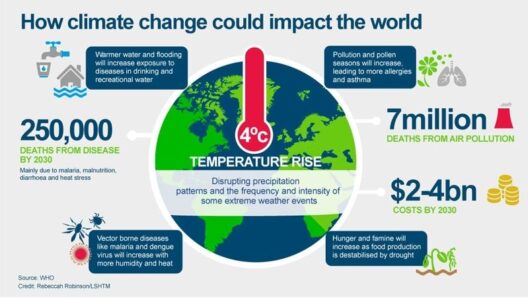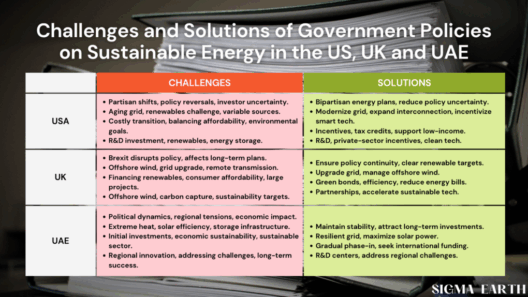As the global community grapples with the escalating challenges posed by climate change and resource depletion, the hospitality industry stands at a pivotal crossroads. Hotels have the unique opportunity to incorporate sustainable practices into their operations while still providing an unparalleled experience for their guests. This synthesis of energy conservation and guest satisfaction invites a transformative perspective—one that promises not only environmental stewardship but also a novel approach to hospitality that meets the desires of the modern traveler.
First and foremost, an understanding of energy consumption is fundamental. Hotels—often identified as energy-intensive facilities—are responsible for a substantial share of global carbon emissions. Establishments typically consume energy for heating, cooling, lighting, and powering amenities. However, the good news is that these infrastructural components offer a fertile ground for efficiency improvements. From geothermal heating systems to LED lighting, a plethora of innovative solutions exists to reduce energy use without compromising guest comfort or experience.
One practical approach involves the integration of smart technologies. These systems employ advanced sensors and automation to optimize energy use dynamically. For instance, smart thermostats can adjust heating and cooling based on occupancy patterns. Guests might enter their room to an inviting temperature that accommodates their preferences, all while the hotel minimizes unnecessary energy consumption. Such technologies not only conserve resources but also engage guests in the hotel’s sustainability narrative, inviting them to participate in eco-friendly practices.
Implementing energy management systems (EMS) is another strategic initiative that hotels should consider. An EMS allows for continuous monitoring and evaluation of energy usage across various departments. These systems can produce real-time data analytics, identifying which areas are most energy-intensive and pinpointing opportunities for improvement. With a comprehensive understanding of their energy profile, hoteliers can make informed decisions about renovations, upgrades, or even behavioral changes among staff and guests.
In addition to technology, hotels can harness the power of renewable energy sources. Solar panels, wind turbines, and geothermal systems can significantly reduce a hotel’s reliance on fossil fuels. For example, installing solar panels on rooftops can provide a substantial portion of the establishment’s energy needs while offering guests an aesthetic view of a green initiative in action. Integrating visible renewable energy installations into the hotel’s architecture not only enhances the property’s appeal but can also serve as a conversation starter, engaging guests in a dialogue about sustainability.
Water conservation is equally paramount in the quest for overall sustainability. By installing low-flow fixtures and employing greywater recycling systems, hotels can substantially reduce water consumption. Furthermore, educating guests about the importance of conserving water can enhance their experience. For example, hotels can offer guests the choice of opting out of daily laundry services to promote reduced water usage. This not only aligns with sustainability goals but also enhances guest awareness and creates a deeper connection between the traveler and the environment.
Additionally, a focus on local sourcing can greatly diminish a hotel’s carbon footprint while providing guests with an authentic experience. By partnering with local farms and artisans, hotels can serve fresh, organic cuisine that reduces the need for long-distance transportation and promotes regional economies. This strategy enriches the culinary offerings and heightens the guest experience with unique flavors and ingredients native to the locale. Moreover, packaging such culinary experiences as eco-friendly initiatives connects guests to the warmth of local culture while emphasizing the hotel’s commitment to sustainability.
Moreover, embedding sustainability into guest experiences adds another layer to the hotel’s energy conservation strategy. By curating eco-tours, offering guided nature walks, or hosting workshops on local environmental issues, hotels can engage guests in sustainable practices that transcend their stay. This connection fosters an enhanced sense of community and stewardship among travelers, transforming them into advocates for environmental protection long after they have checked out.
To further bolster sustainability, hotels might consider the idea of establishing a green certification program. Such initiatives create a sense of accountability and standardize the measures taken to conserve energy and resources. Guests are becoming increasingly eco-conscious; thus, receiving recognition for green practices enables hotels to distinguish themselves in a competitive market, aligning their mission with the evolving values of prospective guests.
Training and engaging staff in sustainability practices is essential. A well-informed and passionate staff can amplify energy conservation efforts. When hotel employees understand the significance of energy-saving measures, they can explain these initiatives to guests and foster a culture of sustainability throughout the property. In addition, conducting regular workshops and team-building exercises focused on sustainability not only motivates staff but cultivates a shared vision and collaborative effort toward a common goal.
Finally, marketing sustainability efforts and fostering transparency with guests can enhance perception. Highlighting energy-saving achievements, green certifications, and participation in local conservation programs on the hotel’s website and promotional materials engages potential guests. When consumers see a hotel’s authentic commitment to sustainable practices, it can spark curiosity and pique interest, thereby enriching their stay with a sense of purpose and connection to the larger environmental narrative.
In conclusion, the intersection of energy conservation and guest satisfaction presents an unparalleled opportunity for hotels. Through innovative technologies, renewable energy sources, water conservation, local sourcing, guest engagement, and staff education, hotels can create an environmentally sustainable operation that captivates guests and inspires them to embrace a greener lifestyle. The world of hospitality must evolve, anchoring its foundations in conservation while simultaneously redefining the essence of guest experiences. This paradigm shift toward sustainability, if harnessed effectively, can indeed ‘wow’ guests and transform the industry for the better.







